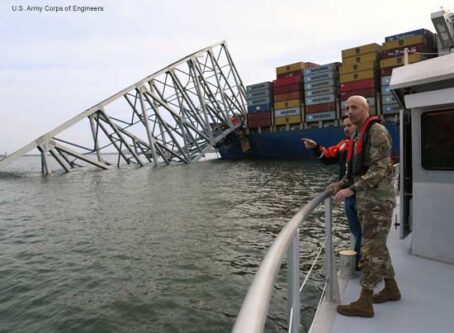Pennsylvania lawmakers approve apportioned registrations, vehicle snow and ice removal
One bill headed to the Pennsylvania governor’s desk covers apportioned registrations and snow and ice removal from atop vehicles.
The apportioned registration provision is touted to benefit truck drivers and the state transportation department.
The General Assembly has approved by unanimous consent a bill to require the Pennsylvania Department of Transportation to stagger the expiration dates of commercial vehicles apportioned registrations.
Pennsylvania regulations now mandate every apportioned vehicle registration to expire annually on May 31.
Advocates say the single expiration date has historically caused an annual backlog at the agency. They add that there is no need for PennDOT to require every apportioned registration to expire at the same time.
The change in SB1094 provides at least four renewal periods each year. The department would be authorized to prorate registration as the new expiration dates are created.
Currently, there are seven states that stagger registrations quarterly and 40 states stagger monthly.
OOIDA touts benefit of apportioned registration change
The Owner-Operator Independent Drivers Association says the change will benefit members responsible for purchasing and renewing their own plates.
The Association estimates there are about 3,000 to 4,000 members affected who reside in the state.
OOIDA has said the current system that expires all apportioned registrations at the same time is “chaotic at best and creates an unnecessary backlog.”
Attention to snow and ice on vehicles
The most notable provision in the bill addresses the winter driving concern of snow and ice removal from on top of cars and trucks.
State law allows police to ticket car and truck drivers from $200 to $1,000 if the wintry precipitation causes serious injury or death.
The change included in SB1094 would require drivers to remove accumulated ice or snow before driving on roadways.
Law enforcement would be authorized to issue tickets solely for failure to clear their vehicles of snow and ice. In addition to trucks, mass transit vehicles, buses, and school buses would be covered by the rule.
Drivers would be required to make “reasonable efforts” to remove snow or ice from all parts of their vehicles within 24 hours of a weather event.
Offenders would face a maximum fine of $1,500 if the wintry precipitation causes serious injury or death. The bill includes an additional protection allowing police to ticket drivers $50 for failure to clear snow or ice before they take to the roads.
Truck operators would be excused if they are on their way to a facility to remove accumulated snow or ice. In addition, violations would not be issued if compliance would cause the trucker to violate any federal or state law or regulation regarding workplace safety, or if it would be a health or safety threat.
Enforcement would be limited to highways.
Long-time pursuit
Sen. Lisa Boscola, D-Northampton, has led the pursuit at the statehouse for much of the past two decades to get the changes enacted.
Dubbed “Christine’s Law,” the rule is named for Christine Lambert of Palmer Township, Pa. Lambert died on Christmas Day 2005 after the vehicle she was riding in was struck by ice dislodged from a passing truck that crashed through her windshield.
“My bill is first and foremost about public safety,” Boscola said in a news release. “The goal of Christine’s Law is to increase public awareness and make people more vigilant about clearing snow and ice from their vehicles so that the tragedy that befallen to the Lamberts don’t happen to other families.”
OOIDA has concern
The Association has concern about rules that permit police to pull over drivers whose vehicles were not cleared of snow or ice. OOIDA points out that facilities are not readily available to accommodate clearance mandates on trucks. Another problem is the practicality of rules that appear to require people to climb atop large vehicles, and do so in less-than-desirable conditions.
The truckers group says the accumulation of snow and ice on any vehicle has the potential to negatively impact highway safety.
“However, when it comes to commercial motor vehicles, there’s really no practical or safe way of removing it from the top of a trailer, especially during winter weather conditions.”
The Association does note that the language does “appear to address some of the safety issues that OOIDA and others have raised through the years.” LL
More Land Line coverage of news from Pennsylvania.









